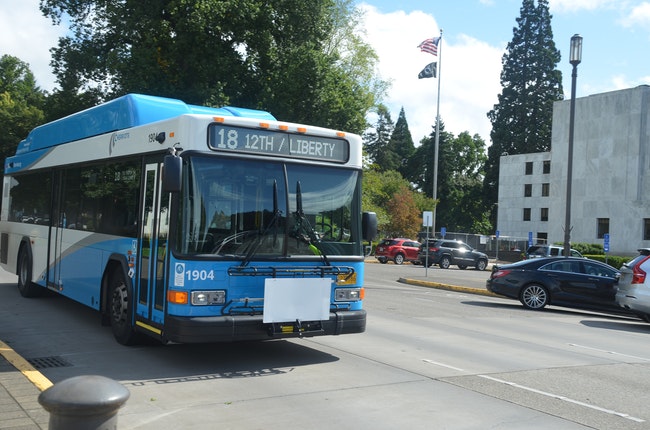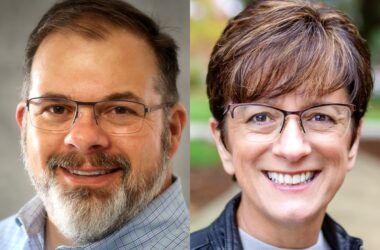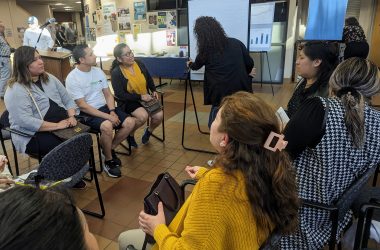With another federal grant, Cherriots is one step closer to having an all-electric fleet of battery-powered buses.
The Salem Area Mass Transit District, known as Cherriots, has received an additional $6.6 million from the Federal Transit Administration which will allow for an additional five buses.
Buses cost $1.2 million each, with remaining funds going to delivery, charging equipment, construction and workforce development, according to the application. Nationwide, transit agencies and state and local governments spent similar amounts per bus, according to reporting from the Associated Press.
The funding was announced by U.S. Rep. Andrea Salinas and U.S. Senators Ron Wyden and Jeff Merkley on Tuesday. It comes from this year’s “no-low” grant, a competitive federal program that provides funding for state and local governments to purchase low and zero emission buses and supporting facilities.
Cherriots has won the grant before, and has received a total of $22.7 million in federal funds since 2020, with awards in 2020, 2021 and 2022. The district has invested an additional match of $6.7 million, according to spokeswoman Patricia Feeny.
“Us receiving this much federal funding, this quickly, I think is a true testament to the strength of the applications that we’ve put together. This go-around, our award was the largest award in Oregon,” Cherriots board president Ian Davidson said, “I think it actually is unheard of to win back-to-back (no-low) awards. And we did.”
The investments since 2020 are enough to buy a total of 20 electric buses.
The district is working to launch the first fleet of 10 electric buses in the coming months on Route 11, which connects Southeast Lancaster Drive with the Keizer Transit Center. They are working to coordinate the needed infrastructure at the Keizer Transit Center and the Del Webb facility in northeast Salem.
Feeny said there isn’t a launch date set, and the district will spend the next several months coordinating installation, adding signage and training operators and maintenance staff on operating electric buses.
Davidson said he’s not sure about the delivery timeline for delivering the rest of the buses.
“Turns out everybody wants battery electric buses right now, and so there are a lot of delays,” he said.
The newest batch of five will replace 15 diesel-fueled buses which have reached their expected lifespan of 12 years, according to the application. Cherriots buses regularly reach 15 years old, said Davidson.
Each bus consumes an average of 37,230 gallons of fuel per year, according to the application. One electric bus will lower the amount of energy Cherriots uses per year by 5,234 gigajoules, the equivalent of 87 years’ worth of gas for the average American car.
Riders will notice a difference on their commutes, with a smoother and quieter ride with better stops and starts, Davidson said.
Once all 20 buses are delivered, 10 diesel buses will remain in Cherriots’ fleet. The district has a goal of replacing its entire fleet with zero emission vehicles by 2040.
“With this most recent grant funding, we’re well on our way,” Davidson said.
Contact reporter Abbey McDonald: [email protected] or 503-704-0355.
SUPPORT OUR WORK – We depend on subscribers for resources to report on Salem with care and depth, fairness and accuracy. Subscribe today to get our daily newsletters and more. Click I want to subscribe!
Abbey McDonald joined the Salem Reporter in 2022. She previously worked as the business reporter at The Astorian, where she covered labor issues, health care and social services. A University of Oregon grad, she has also reported for the Malheur Enterprise, The News-Review and Willamette Week.









